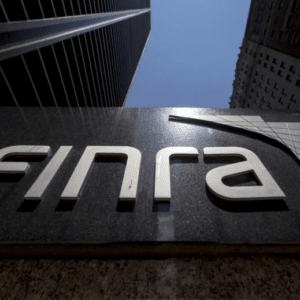In deciding whether to award a dispute to a FINRA arbitrator, both parties must agree to the rules of the proceeding. FINRA arbitrators sit in equity rather than law, but they are not required to be attorneys. Because of this, some parties may disagree with their decision and request that an arbitrator is struck. FINRA arbitration rules provide that a panel may be struck if there is a conflict of interest or the arbitrator’s qualifications are questionable.
FINRA arbitrators sit in equity
Table of Contents
FINRA arbitrators sit in equity. They have the power to rectify wrongs in the securities industry, and they do not have to get stuck in the nitty-gritty of particular claims. Rather, they follow the law. Equity arbitrators sit in a court of law. In most cases, FINRA arbitration hearings take place at one of several locations throughout the United States. Here are some of the differences between equity arbitrators and court-appointed arbitrators.
Once you’ve filed your claim, you and your broker/brokerage firm will go through a process similar to that for a traditional arbitration hearing. The FINRA arbitration committee will use the information you provide to pick an arbitrator. The parties will then schedule a pre-hearing conference, usually over the phone, to go over basic logistics. This can include future scheduling or complicated procedural matters.
Because of their incentive to settle disputes, FINRA arbitrators sit in equity to prevent fraud. They also have the power to revoke the membership of member firms or associated persons. However, FINRA arbitration does not hold members to the same standards as courts. As such, the compensation you receive may be much lower than a court award. If you do win the case, you can expect to receive a payment that is fair and sufficient.
FINRA arbitrators are independent
FINRA provides that the panel of arbitrators is made up of independent individuals who are qualified to serve as Chair of the hearing. Each party is given a list of ten chair-qualified public arbitrators. Separately represented parties can strike up to four arbitrators from the public list and rank the remaining six to ten arbitrators in order of preference. The parties then choose between the arbitrators based on their preferences.
FINRA also offers arbitration mediation. Mediation is a less formal process than arbitration. In mediation, the disputing parties negotiate a mutually agreeable settlement through a trained, neutral third party. Mediation is not mandatory, but it can be beneficial in certain situations. The FINRA-approved arbitrators have subject matter expertise, so the parties can select one with relevant knowledge in the securities industry or business area.
FINRA requires that parties send all relevant documents to FINRA, as well as a list of potential arbitrators. The arbitrator then meets with the parties and holds an initial pre-hearing conference. During this meeting, the parties discuss procedural issues, possible mediation alternatives, discovery, and the date of the hearing. A FINRA arbitrator must follow the decisions of the parties. A FINRA arbitrator must not be biased or influenced by FINRA or its employees.
The Financial Industry Regulatory Authority has appointed a law firm to review the procedures for selecting arbitrators. The decision to invalidate a Wells Fargo arbitration decision stems from the fact that the company improperly manipulated the arbitrator selection process. A judge found that Wells Fargo’s lawyers and its attorneys improperly removed three potential arbitrators from the neutral list. This case is an important example of how FINRA arbitrators work.
FINRA arbitrators are not required to be attorneys
While FINRA arbitration is a less stressful process, attorneys are still required to prepare cases. The job is just as complex as a trial, and requires extensive knowledge of securities law and industry standards, as well as access to credible expert witnesses. Attorneys who choose this path can expect to see substantial monetary recoveries for their clients. FINRA arbitrators are not required to be attorneys, but the process is much easier for those with an attorney’s guidance.
If you are an attorney, your FINRA arbitration may not be the best choice for you. Unless your claim exceeds a certain amount, you’ll have to hire an attorney. FINRA arbitration panels are composed of one to three arbitrators who are selected by the parties based on the total amount of alleged damages. The arbitrators coordinate oral arguments for both parties and review documentary and testimonial evidence. The arbitrator’s decision is binding on all parties.
FINRA arbitrations involve a range of situations. These cases are typically much more complex than shop-floor labor disputes, but FINRA has recognized the need to provide additional safeguards for its customers. In the past, stock exchanges treated arbitrations as a way to resolve disputes between members. The New York Stock Exchange started offering arbitration services in 1817, but did not permit customer access until 1872. Most securities arbitrations involved repeat players.
FINRA arbitrators can be struck
If a FINRA arbitrator is not suitable for a case, a party may strike them. A FINRA arbitrator is independent of the securities industry and is not a member of any trade association. A public person may serve as a chairperson in a dispute. FINRA distributes lists of public people with different qualifications to arbitrators who have filed cases before the association. Each party can select an all-public panel, rank the arbitrators in the list, and then strike four to six of them. A ranked list of 10 arbitrators should be selected.
In a civil court case, parties depose witnesses, propound interrogatories, and request documents from each other. In a FINRA arbitration, the parties can dispute discovery requests. Regardless of whether parties agree with these requests, they are likely to cost money. This means that if the parties can avoid discovery disputes, the overall cost of the arbitration will be lower. Moreover, FINRA arbitrations generally include pre-hearing conferences. Parties to an arbitration case will first schedule a pre-hearing conference with the arbitrator. They can participate in the conference by phone, video, or through internet-based conference programs.
Once the parties have agreed on an arbitrator, a FINRA arbitration must meet the FINRA Rules. Failure to meet the Code can result in sanctions such as claim dismissal. FINRA Rule 12506 also sets forth procedures for striking arbitrators. Moreover, arbitrations are governed by the FINRA Code of Arbitration Procedure for Customer Disputes. If the arbitration does not meet these requirements, a party may pursue its claim in civil court. The statute of limitations for such cases differs from state to state.
FINRA arbitrators can be confirmed or vacated in court
The Supreme Court’s ruling on whether FINRA arbitrators can be confirmed or voided will make it harder for participants of the arbitration process to appeal the result to a federal court. However, it does not prohibit participants from filing petitions in federal court to compel arbitration. In some cases, winners of arbitration proceedings will take their victory to state courts, and losers will seek to reverse the arbitrators’ decision. However, it is rare for an arbitral award to be overturned in federal court.
If a FINRA arbitrator is not able to reach a decision on the merits of a claim, a securities broker may petition a court to vacate the award. This is the case in the FINRA arbitration case wherein a securities broker filed a petition to vacate an award issued by an arbitrator.
The FINRA arbitration process requires independent arbitrators to decide on the merits of the case. The arbitration panel must make a final decision within thirty days, or the opposing party will file a motion in court to vacate the award. However, if the opposing party fails to pay the award within the 30-day period, FINRA has the authority to suspend the brokerage firm and/or the licensed broker. Therefore, investors risk not receiving their awards if the opposing party files for bankruptcy or leaves the securities industry.
FINRA arbitration awards are not subject to appeal
Whether or not a FINRA arbitration award is subject to appeal is a difficult question to answer. It may be a good idea to have a reasoned award, which the arbitrator should explain. A Reasoned Award should not only spell out the methodology used to determine damages, but also the reasoning behind the decision. It is also important to have an appeals process in place, as this is another avenue in which a consumer may appeal a decision.
FINRA arbitration awards are not appealable in federal court, which makes it harder for participants to seek judicial review of their decisions. Nonetheless, there are exceptions. Federal arbitration laws allow a federal court to look through a dispute and compel arbitration. Nonetheless, the recent Supreme Court decision isn’t applicable to petitions filed by parties involved in arbitration. Hence, arbitration winners or losers may still seek justice in state courts and challenge the decision in federal courts.
While a formal appeals process exists under federal law, FINRA doesn’t have one. Instead, it requires parties to take their case to the courts, which can be costly and time-consuming. However, the benefits of having an attorney to represent you during the appeals process make it well worth the extra expense. While it may not be a perfect solution, an experienced attorney will help you minimize the difficulty of the case and maximize your chances of a successful recovery.


